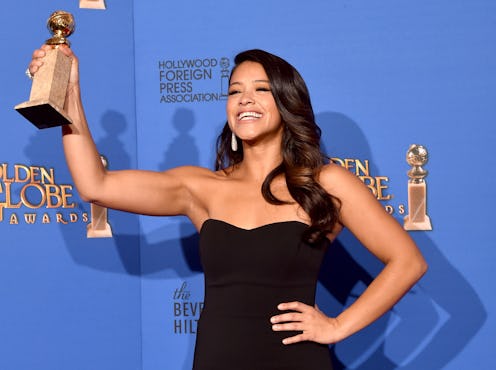Entertainment
How Diverse Are Past Golden Globes TV WInners?
Awards season is fast approaching — even faster than tax season. And with the Golden Globes taking place on Jan. 10, I’m crossing my fingers and toes that the Hollywood Foreign Press Association doesn’t fail to recognize diversity and representation adequately this year. While it gives me hope is the fact that the Golden Globes actually stood out as a relatively bright spot for its inclusiveness in television nominees in 2015 — but it was by no means leaps and bounds ahead.
The 2015 award season was pretty dismal when it came to diversity — it was business as usual, aka mostly made up of white actors nominated for their roles that year — so under the circumstances, the Globes set themselves apart. But, how diverse exactly have the Golden Globe television winners been in the past?
Let’s start with the numbers. Throughout its history, the minority nominees for the Golden Globes across all categories have only numbered at 33, and only six have ever won. The 72nd Annual Golden Globes' television nominations and wins significantly improve when it comes to inclusiveness for women and LGBT representation, though: The awards show has granted wins to Transparent, Jane The Virgin and The Normal Heart. As you can see broken down in these handy graphs comparing inclusiveness and recognition of minorities between 2015 and 2014, 2014 wasn't a great year for LGBT representation — no openly-gay actors received any nominations.
For women and women-led works in 2014, only 0.7 percent of the nominees took home the awards, though that was definitely an improvement on previous years. It was even worse for people of color: Only 0.2 percent of the nominees took home their awards, and many of these were in the film category for the deserved nominations for 12 Years A Slave. The TV category left much to be desired, with only Don Cheadle being nominated for Showtime’s House Of Lies for Best Actor in a Television Drama.
However, the Comedy and Drama series winners, Amazon’s Transparent and Showtime’s The Affair, were created and written by female showrunners, Jill Soloway and Sarah Treem, respectively.
The 2015 awards did technically nominate more people of color than in 2014. Gina Rodriguez won her first Golden Globe at the 2015 ceremony, a triumph on multiple levels. Nominated for Jane The Virgin after just one season, she won the statue for Best Actress In A Musical or Comedy over veterans like Edie Falco, Julia-Louis Dreyfus and Lena Dunham. Rodriguez was not only the sole woman of color nominated in the category, but also the first woman of color to EVER win the award, meaning she literally made history.
However, her win was overshadowed by the fact that other actors of color, like Viola Davis (who killed it in How To Get Away With Murder) were not recognized for their work.
As for the argument that “awards don’t mean anything,” that’s not an excuse to be exclusive and limited and even ignorant of important stories. As Salon wrote in 2014 in “The Golden Globes’ Race Problem:”
The Hollywood Foreign Press-run Golden Globes mark the beginning of the “big time” in cinematic and small-screen honors. Debatable as their artistic merit often is, it’s absurd to write them off as meaningless to minority actors, directors and industry insiders — especially since, historically, they’ve been far less likely to receive nominations.
With Hollywood's not-so-wonderful performance in the past when it comes to nominating and actually giving wins to a diverse set of actors, the Hollywood Foreign Press Association should absolutely step it up this year — after all, snubs will be even more obvious with the amount of quality programming that showcased diverse stories in 2015.
Images: Kadeen Griffiths/Bustle
